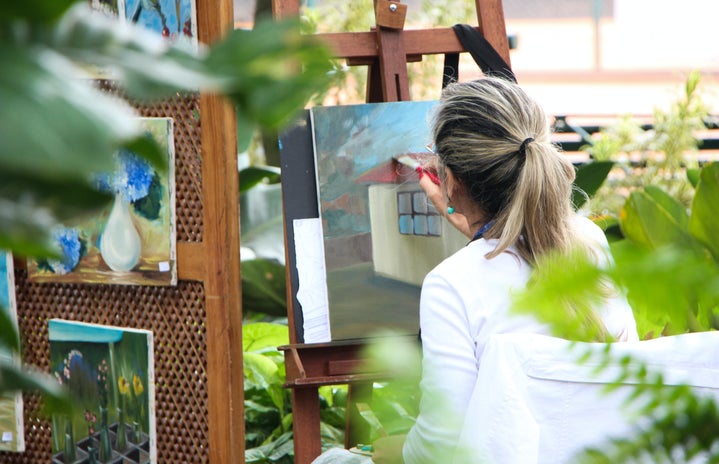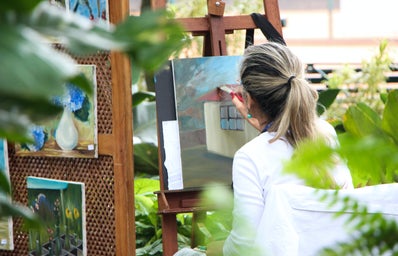In one of the classes I’m taking right now, we’ve spent the last couple of weeks deconstructing a book called The Marriage Plot by Jeffrey Eugenides. We’ve analyzed it’s treatment of love and marriage and wondered whether the book was about love at all, or if it was about the way we all live out the fairytales of fictitious heroines such as Elizabeth Bennet. The novel starts with an epigraph quoting François de La Rochefoucauld: “People would never fall in love if they hadn’t heard love talked about.” I think it’s outside the scope of anything but a psycho-literary study to really deal with that. But it got me thinking, even if La Rochefoucauld has us all figured out, what’s the harm?
It seems like a big part of growing up is this increased emphasis on killing your heroes, ceasing to dress up as Cinderella for Halloween, and looking at the world the way it really is. Supertramp said it best: “then they send me away to teach me how to be sensible, logical, oh responsible, practical … clinical, oh intellectual, cynical.” It’s no secret that STEM majors are thought to be closer to gainful employment than liberal arts majors, who, as popular opinion maintains, waste away the days composing haikus about the sunset. A degree in the humanities is often perceived as a recipe for grad school, and that’s about it. Maybe there is some truth to that. But isn’t there a case to be made for imaginative capacity? When all else fails, aren’t our dreams what might make the day worth seizing?
Slander about the Arts runs the same kind of party line as slander about Romantic Comedies. Categorized as “chick-flicks” and dismissed as flighty, fluffy, or any other derogatory adjective of that persuasion, these movies aren’t taken seriously whether it be by the Academy or by boys who think they deserve some kind of prize for condescending to watch one with you. I think dreams and imagination and “impracticality” are worth holding onto in a world made grey by T4s and OSAP and climate change.
Julia Stiles as Kat in 10 Things I Hate About You literally evokes a kind of drama reminiscent of a Shakespearean sonnet: “I hate the way you talk to me, and the way you cut your hair. I hate the way you drive my car. I hate it when you stare, I hate your big dumb combat boots and the way you read my mind. I hate you so much it makes me sick, it even makes me rhyme. I hate the way you’re always right. I hate it when you lie. I hate it when you make me laugh, even worse when you make me cry. I hate it when you’re not around. And the fact that you didn’t call. But mostly I hate the way I don’t hate you, not even close, not even a little bit, not even at all.”
In Love, Actually, Hugh Grant as David delivers a speech that, in his characteristically charming narration, really feels like he is addressing you, personally: “It seems to me that love is everywhere. Often it’s not particularly dignified or newsworthy, but it’s always there… When the planes hit the Twin Towers, as far as I know, none of the phone calls from the people on board were messages of hate or revenge — they were all messages of love. If you look for it, I’ve got a sneaky feeling that you’ll find that love actually is all around.”
Then, there’s Harry, from When Harry Met Sally: “I came here tonight because when you realize you want to spend the rest of your life with somebody, you want the rest of your life to start as soon as possible.”
And at the end of He’s Just Not That Into You, Gigi sums up what Kat and David and Harry have all been doing: “Every movie we see, every story we’re told, implores us to wait for it… the third act twist, the unexpected declaration of love, the exception to the rule…maybe the happy ending is this: knowing that through all the unreturned phone calls and broken hearts, through all the blunders and misread signals, through all of the pain and embarrassment…you never, ever, gave up hope.”
Now, granted, I haven’t actually seen them since my far more sci-fi oriented family forced them on me, but movies like Avatar and Rise of the Planet of the Apes, or the ones with that Bond guy, portray a vision that’s far less human than Gigi or Kat or David or Harry. If science defines us, categorizes us, and murders us to dissect us, then rom-coms take on a human lens that can put us back together. They can make a play for the one thing we all have in common: love.
So maybe Rochefoucauld is right; we wouldn’t hold such elaborate fantasies about that “third act twist” if we weren’t inundated with media that swears we’re on the precipice of it. Maybe life would be a lot easier that way, and you would never get your heart broken. A world without the fantasies of the romantic comedy would reduce your expectations and you would much scarcer get your feelings hurt or send an embarrassing text. But wouldn’t that be boring? In that world, with our hearts cooly and “responsibly” detached, we would hear less in our favourite songs and we would be a degree removed from our favourite books.
When you sit around with your friends and commiserate about being ghosted, declaring love dead once and for all, isn’t there something beautiful about, still, however secretly, holding out hope? To be able to live in the vibrant and untainted potential of the happy ending?
We can’t live in the clouds, but it’s really important to stick your head in them every once in a while. It’s the “chick flicks” of the world that can help us do that.



